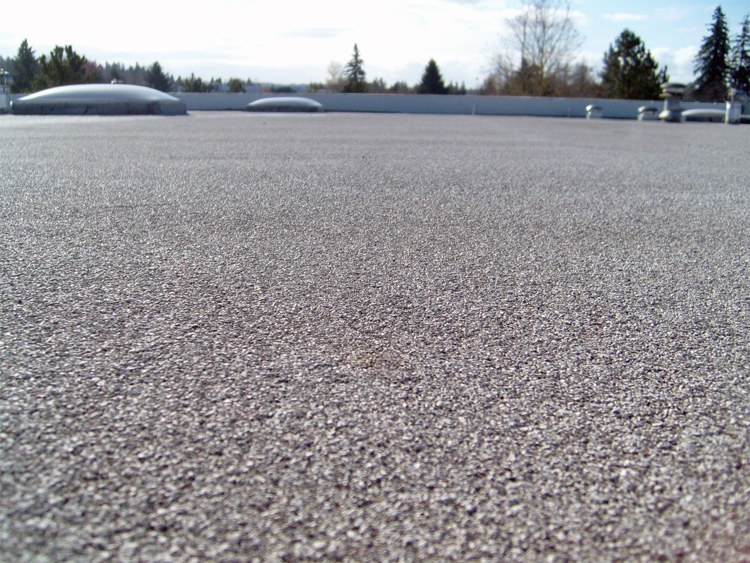Tar and gravel roofs are composed of laminated layers of asphalt-based sheets, hot tar, and roofing felt. The topmost layer is lined with light-colour gravel, which protects the layers against sun damage and reflects some of the sun’s light. If you have a home or business with a flat roof – a tar and gravel roof may be the way to go. Here are some things to consider before deciding if this is the right roofing option for you.
Advantages
Of all the flat roofing options, a tar and gravel roof is the least budget-friendly; however, it can have a lifespan of up to 40 years with regular maintenance and repair. It provides excellent protection against UV rays; the surfaces on the gravel scatter light instead of absorbing it, which can help keep your roof cooler in the summer. Gravel is also an excellent fire retardant. A tar and gravel roof has a great return on investment because it lasts a long time. In addition, required repairs are less frequent because of the strength of the materials.
Disadvantages
The upfront cost of a tar and gravel roof is greater than some more commonly used built-up roofing (BUR) systems; this makes them a less popular choice when replacing commercial roofs.
Repair & Maintenance
Roof maintenance is something you need to do in order to protect your commercial roof from any sort of damage. A tar and gravel roof needs regular maintenance to extend its lifespan. At least once a year, check the gravel – if the roof surface becomes exposed, it accelerates the deterioration of the roof. Add gravel where necessary. Remove any leaf debris that builds up over time. Since the roof is flat, rain doesn’t wash down leaves that fall on it, and this can result in ponding, which happens when water stays on the roof surface for more than 48 hours.
What type of commercial building does this roof work best on
- Condominiums, apartments and multi-family structures
- Warehouse and industrial buildings
- Commercial retail units (CRU)
- Restaurants and Gas Stations
- Malls and grocery stores
- Houses with a low slope or flat roof style
A professional roofer is always recommended to do any roof maintenance. Not only can they safely maintain your roof, but they can also advise you on the health and lifespan of your roof.
If you are considering a tar and gravel roof, Contact us today for a free estimate!

